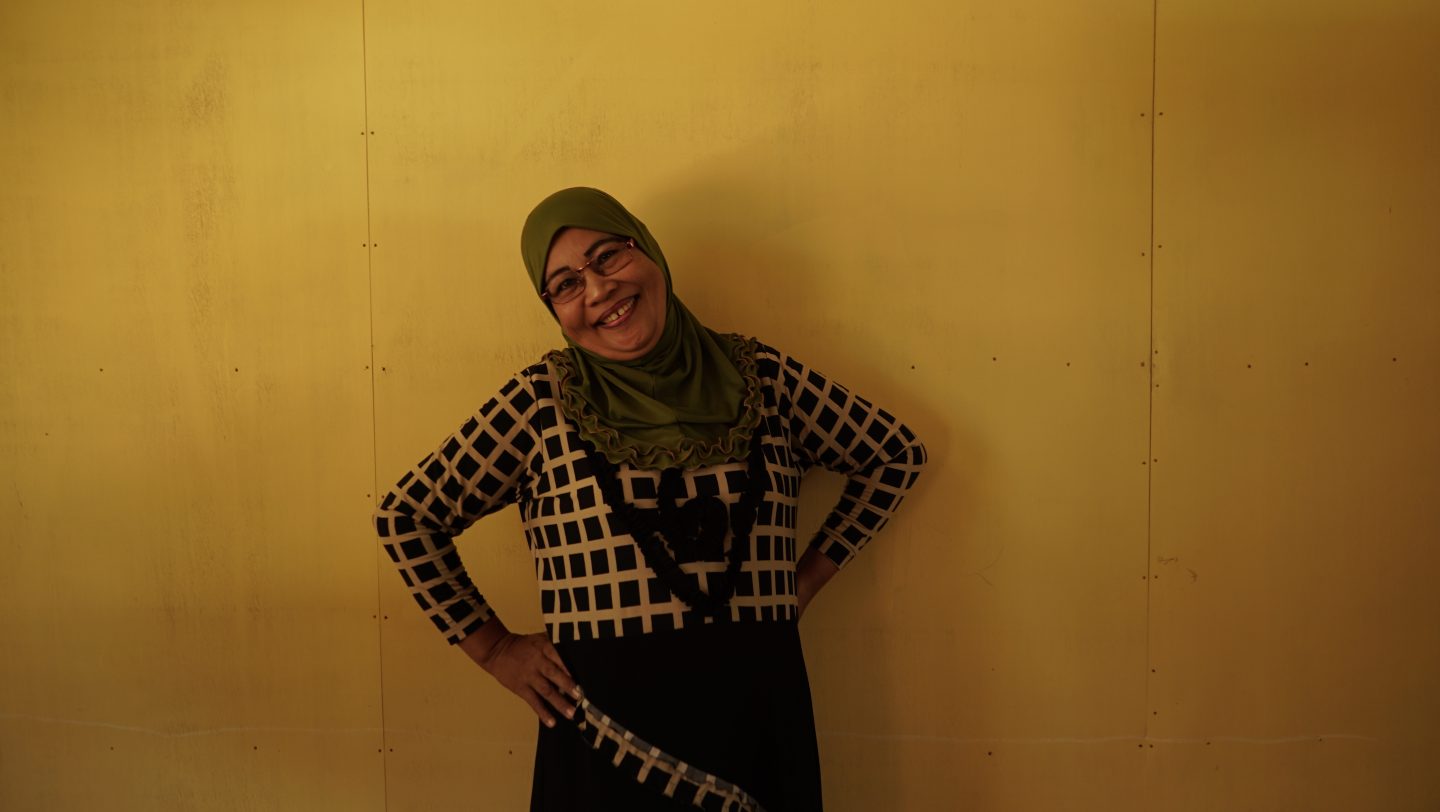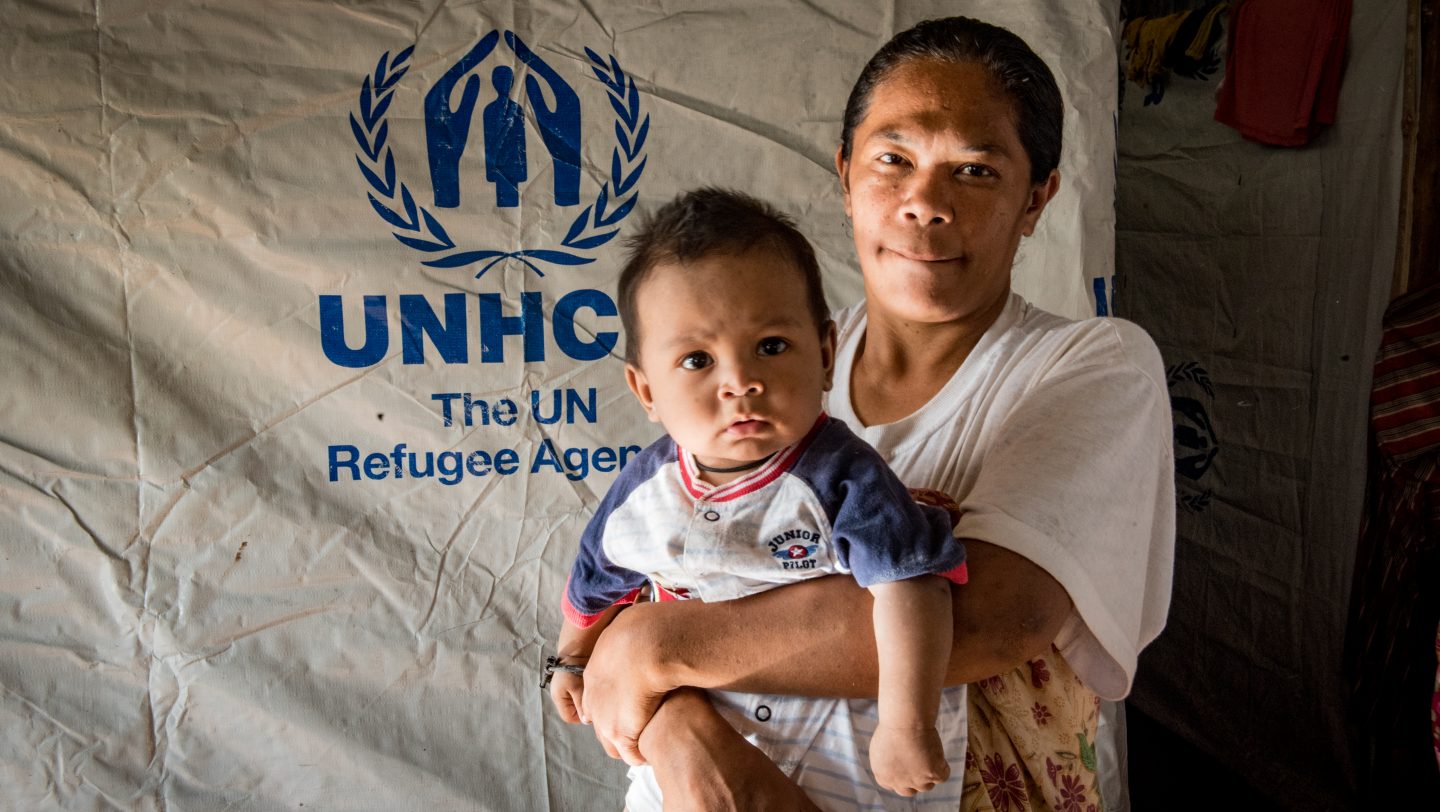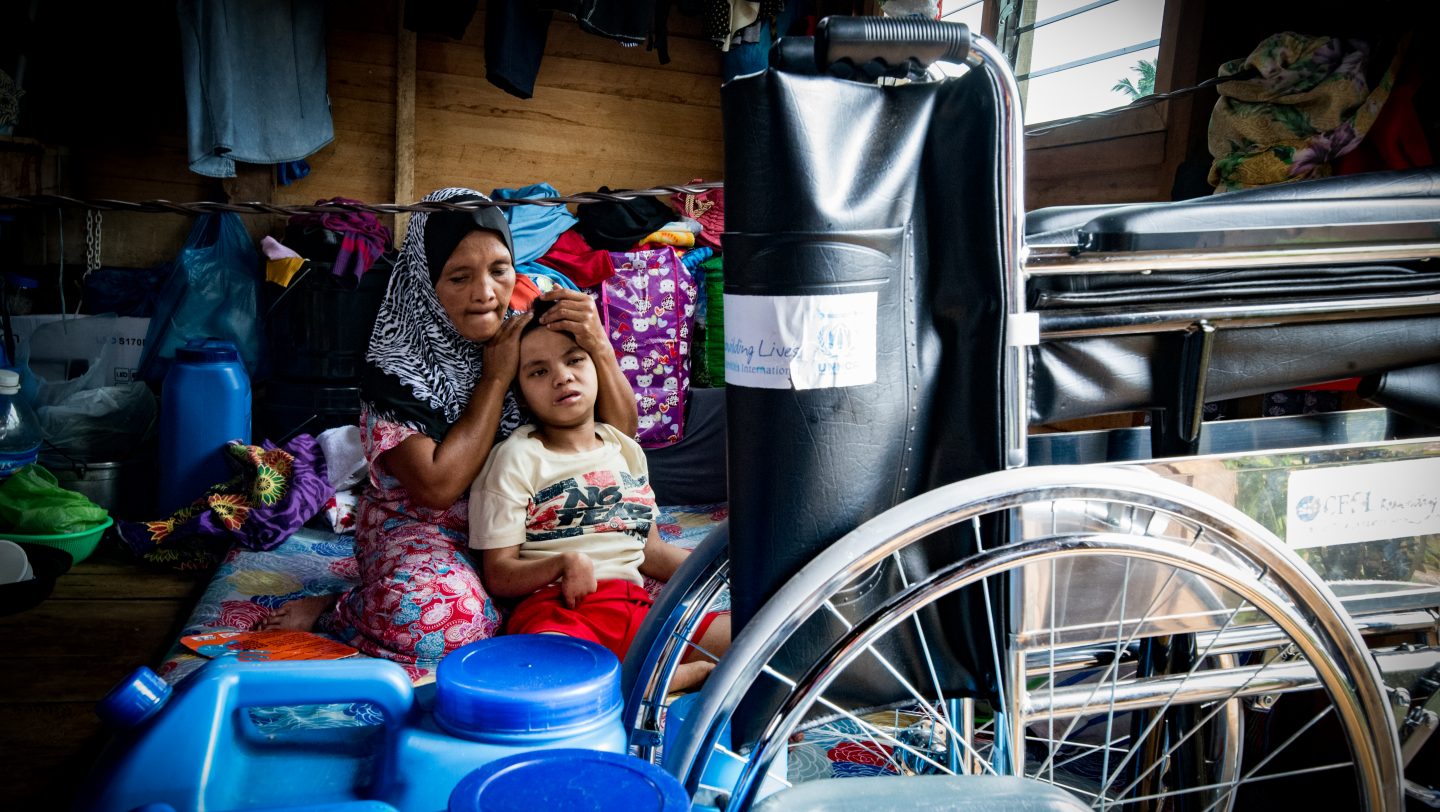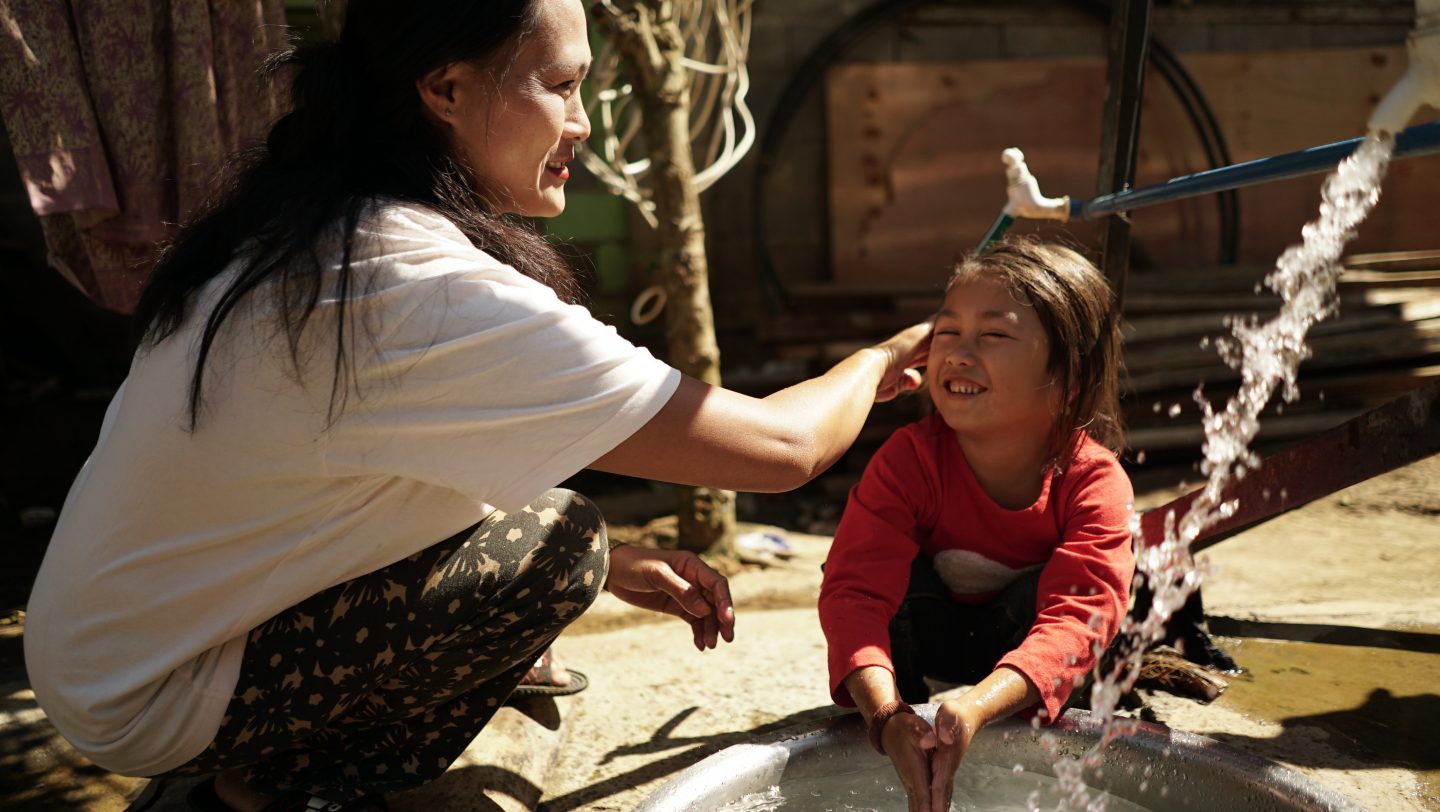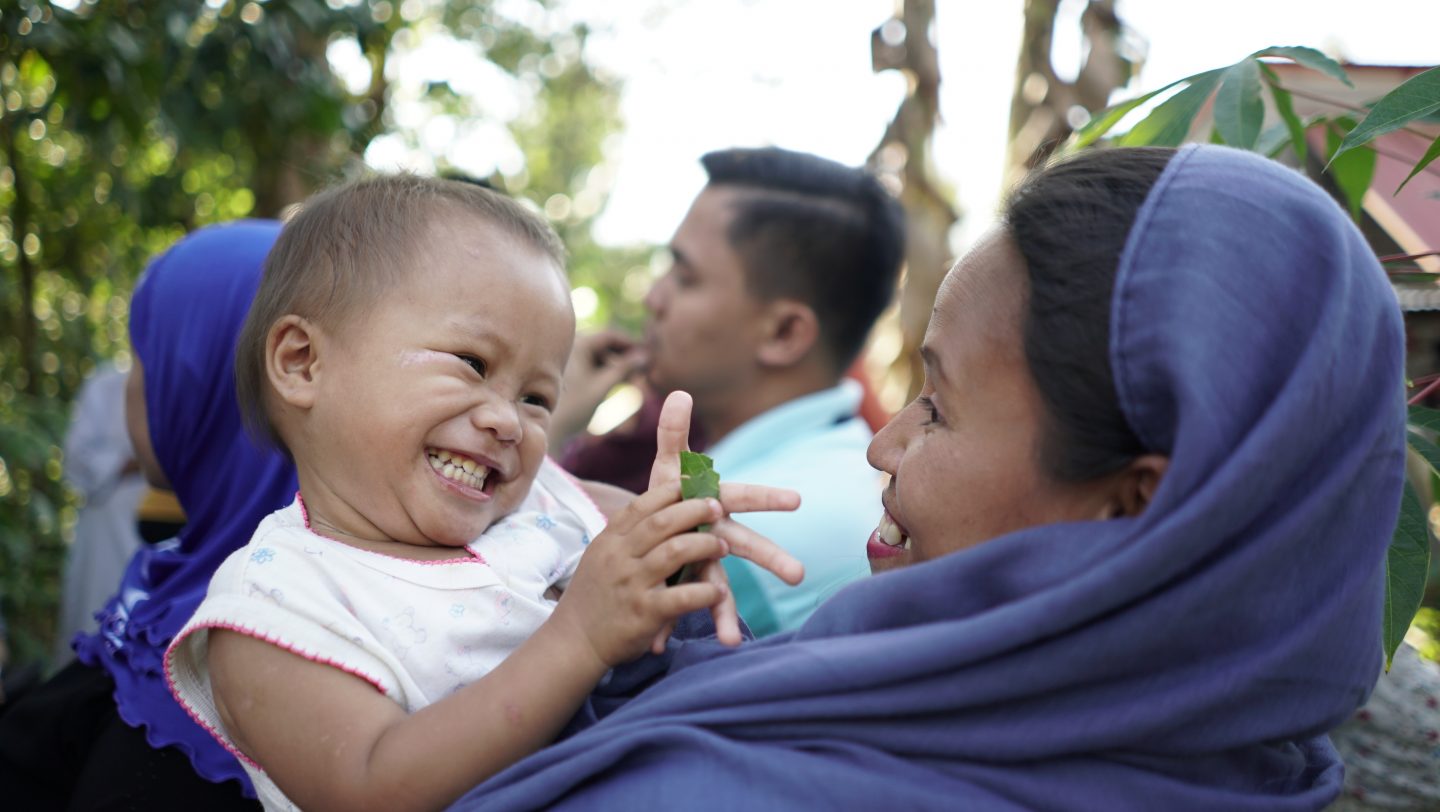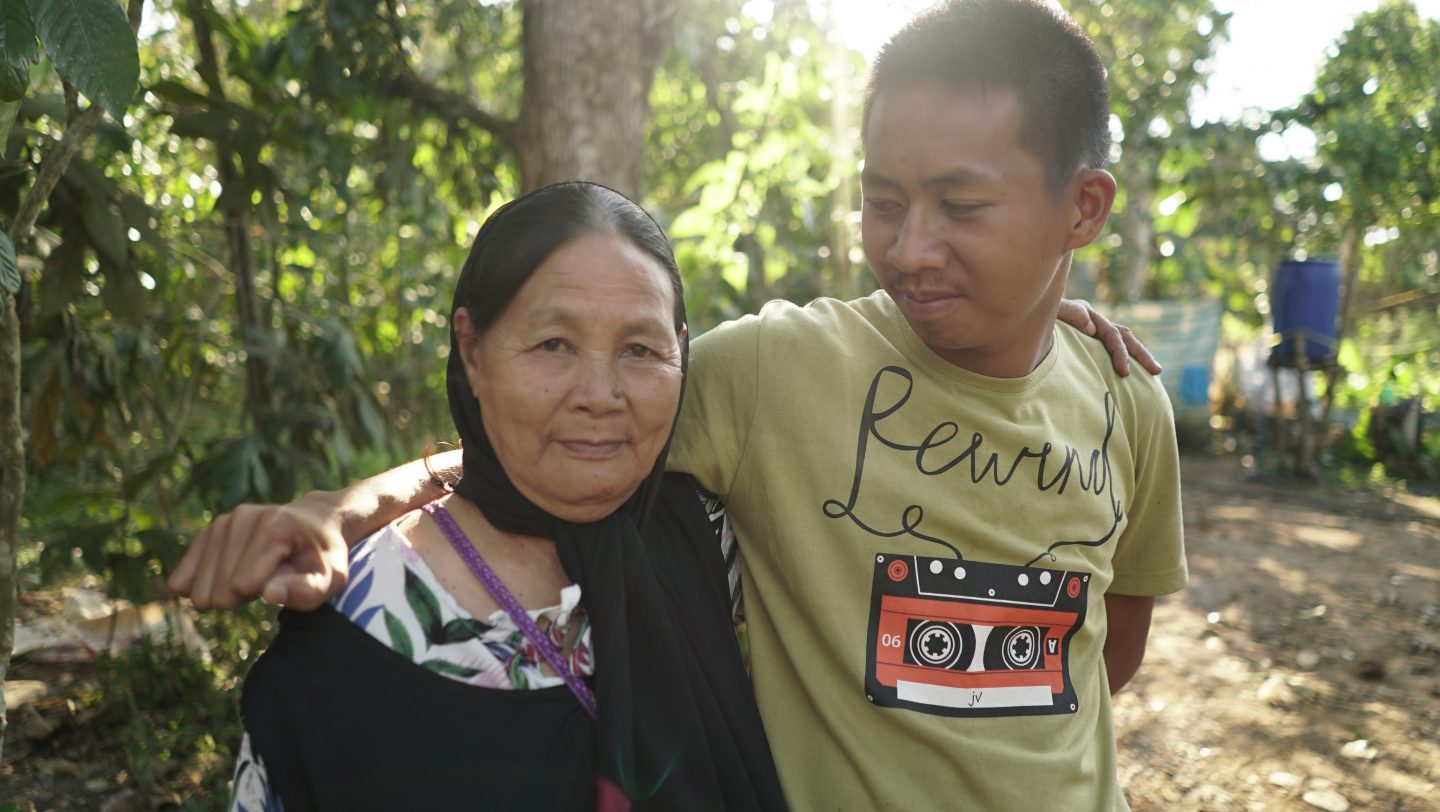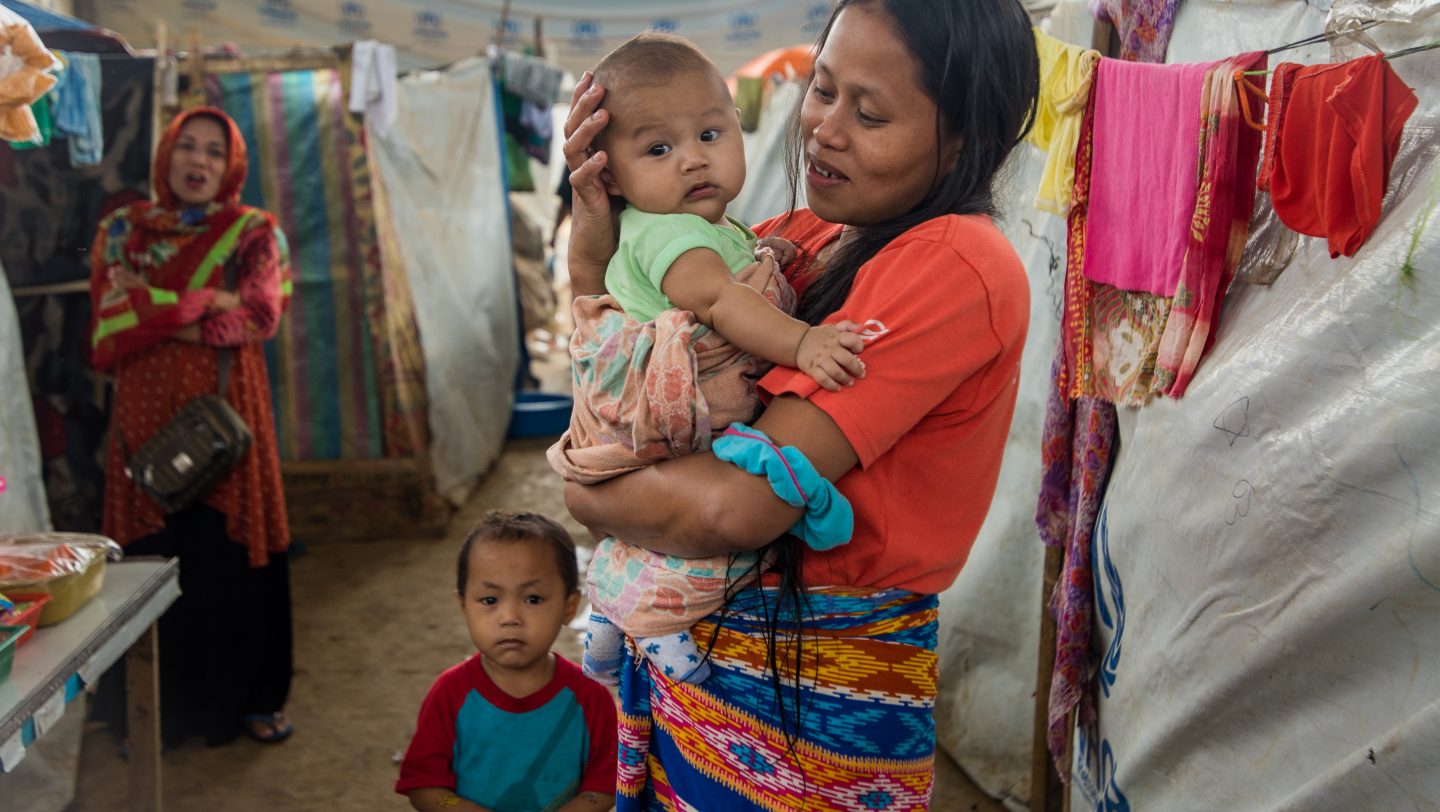Mothers of Marawi: Love that withstands conflict and displacement
Mother’s day is just around the corner. On this day, we recall the resilient mothers of Marawi and their heartwarming stories.
A mother warmly holds onto her child at an evacuation center in Pakalundo, Baloi, Lanao del Norte. This center shelters 183 families displaced by the 2017 conflict.
© UNHCR/Alecs Ongcal
This Mother’s Day, millions of women and their families are living in situations of displacement.
In times of displacement, women can be especially vulnerable. Without the protection of home, mothers struggle to provide for their families.
On this special day, we honor and celebrate the resilience, gentle courage, and care of mothers who were forced to flee their homes because of the conflict in Marawi nearly two years ago. Like all mothers, these displaced women are determined to keep their families safe. They have gone against odds to start rebuilding their families’ lives.
UNHCR’s work builds upon their own resilience and strength, and helps them to improve their lives, as well as those of their children, families and communities, every day.
Please take a moment to recognize their resilience with this photo series.
Share on Facebook Share on Twitter


